Hippocrates is widely considered the father of medicine. But is that true? While the Greek physician contributed to modern medicine, a Black Egyptian known as Imhotep was already practicing medicine and even documenting it as far back as 2,200 years before Hippocrates was born.
So why was Imhotep relatively unpopular? We bet you may never have heard about him. What did Imhotep do that made him the real father of medicine? Here is his story, and you’ll surely agree why his role as the frontrunner in the healthcare field was crucial.
Who Was Imhotep?
Imhotep was an Egyptian polymath (a genius knowledgeable in various academic fields), best remembered for designing King Djoser’s Step Pyramid at Saqqara. Imhotep means “He Who Comes in Peace.” Some accounts say he was worshipped as the “Prince of Peace.” In ancient Egyptian, the name could also be translated as “the voice (or mouth) of Im.” Strangely, there was never a god known as “Im” in Egypt. The closest is the biblical “I AM” in Exodus 3:14.
Over time, he was known to be a god, specifically the “medicine god.” Other historical accounts add the god of wisdom. As a polymath, Imhotep was an excellent mathematician, writer, poet, physician, priest, architect, and astronomer. He served as a priest and vizier to King Djoser and likely the next three kings of the Third Dynasty.
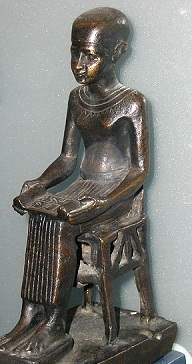
The Egyptians, Greeks, and Romans Respected Him
Just so you know, Imhotep’s claim as the father of medicine isn’t a sham made up by overzealous Africans. The historical figure received cross-continental acclaim beyond the continent.
Although the Step Pyramid is regarded as his biggest achievement, he is also remembered for his medical literature that treated illness and injury as natural occurrences rather than punishments meted out by deities, evil spirits, or curses. Around 525 BCE, the Egyptians deified him.
Remember that Hippocrates, now regarded as the father of medicine, was Greek. But even the Greeks compared Imhotep to the demi-god of healing, Asclepius. Throughout the Roman Empire, his writings were widely read and influential. Emperors Tiberius and Claudius had inscriptions praising the kind-hearted god Imhotep in their temples.
Read: How Does Oral Health Affect Overall Wellness?
How Do We Know Imhotep Is the True Father of Medicine?
A research team from The University of Manchester’s KNH Centre for Biomedical Egyptology found the proof in medical papyri from 1,500 BC or 1,000 years before Hippocrates was born.
The Edwin Smith Papyrus, an Egyptian medical document that contains approximately 100 anatomical terminologies. It explains 48 injuries and their treatments, usually regarded as having their origins in the writings of Imhotep.
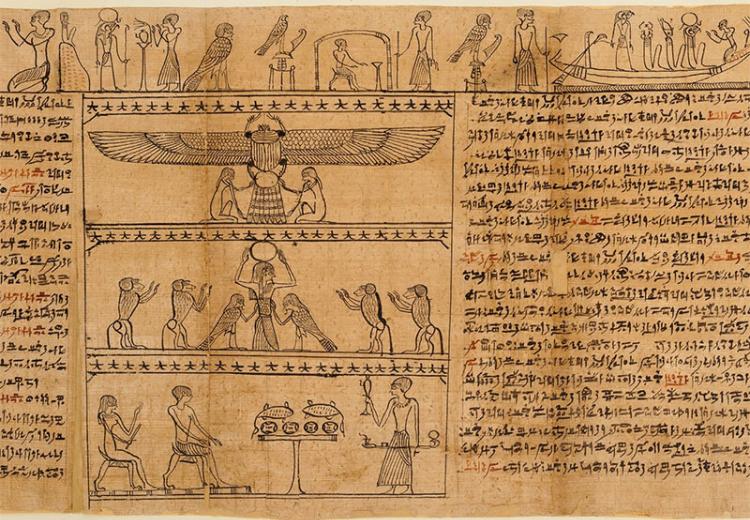
Although it was written long after Imhotep’s time, around 1600 BCE, and may have been a military field manual, the text is believed to be a duplicate of Imhotep’s earlier work. Researchers who have been combing through texts from 3,500 years ago claim they have evidence that ancient Egypt, not Hippocrates and the Greeks, is where modern medicine first emerged.
The medical records originally uncovered in the middle of the 19th century revealed that Egyptian physicians used honey, resins, and antimicrobial metals to cure wounds. Imhotep was a royal counsellor, a builder of pyramids, and a paragon of knowledge before becoming the god of healing and science. He is also known as the sole ascended mortal in the Pharaonic pantheon.
Imhotep insisted that knowledge could only be helpful if it were put to use for the benefit of everyone. His central principle was that magic, science, and knowledge should all be used to benefit humanity. Although Imhotep did surgery and healed patients from over 200 diseases, including tuberculosis, gallstones, appendicitis, gout, and arthritis, magic and herbs were the first kinds of “medicine.” He was also a dentist who could make a diagnosis by examining the tongue, skin, hair, and nails.
More Discoveries About Imhotep Being the Forerunner of Modern Medicine
Researchers found bulk laxatives made of figs and bran and prescriptions for laxatives made of castor oil, colocynth, and both. Other sources demonstrate that the hyoscyamus, still used today to treat colic, was once used as an intestinal carminative. This also includes cumin and coriander. More proof indicated that poultices were used to warm and relieve musculoskeletal problems in addition to rubefacients to enhance blood flow. They used pomegranate to treat tapeworms, a treatment that was still being used in clinical settings up until around 50 years ago. And celery and saffron for rheumatism, both of which are today the subject of pharmaceutical study.
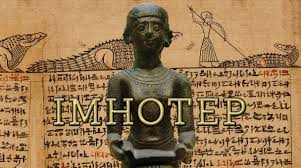
Imhotep Was Confirmed to be the Real Father of Medicine by William Osler
Canadian physician William Osler, who was also one of the four founders of Johns Hopkins Hospital, argued that Imhotep was the true father of medicine. Note that Osler himself has been regarded as the father of modern medicine. But he chose to give that honour to the Egyptian who lived thousands of years before him or Hippocrates.
In his words, William Osler described Imhotep as the “real father of medicine” and not Hippocrates. He also said Imhotep was “the first figure of a physician to stand out clearly from the mist of antiquity.”
There Are Claims That Imhotep Was Never Really a Physician
The idea that Imhotep is the father of medicine has been challenged by a few accounts as a myth than fact. Imhotep was recognized above as a wise and well-educated man of many abilities, including the construction of the first pyramid, the pyramid of Djoser, in a region of Egypt called Saqqara.
Virtually every historical publication agrees he was such a brilliant man. But not every account calls him a physician. Some people say he was a lot of things, but not a doctor. As an architect, he built other pyramids, including his personal tomb, in an undisclosed location in Saqqara.
The word “swnw” is why Imhotep’s legitimacy as a physician is in question. Ancient Egyptians used “swnw” to describe doctors. They attached the title to the name of anyone who practiced medicine. Surprisingly, there are no accounts of the title alongside Imhotep’s name. Especially as other physicians in his time had the title. This is why some people label Hesy-Ra, another ancient Egyptian, as the first true practitioner of medicine. The title was seen next to his name. He also had the title ‘Wer-ibehsenjw,’ meaning “Great one of the dentists” or “Great one of the Ivory cutters.”
However, one cannot be so sure. He was a polymath, so placing the title next to him may have only limited him to a physician, especially when his greatest achievement wasn’t medicine-related.
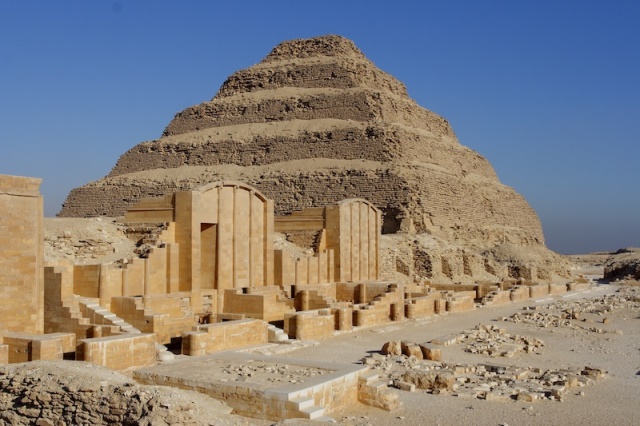
So Why Does Imhotep Not Get His Flowers as the Father of Medicine?
Your guess is as good as ours. The history and historical narratives of Africa have been distorted or completely destroyed by European colonialism. A false narrative that suggested Africa was a backward continent populated by primitive, barbaric people who had no history was propagated to justify the enslavement of Africans. If the world was aware of the tremendous empires and achievements of diverse African communities, it would have been impossible to defend slavery.
Most people growing up didn’t even know Egypt was an African country. The massive development that ancient Egyptians had is still impressive today. The architecture of the Great Pyramids of Giza remains a thing of awe, among many others.
If you look at the images and paintings of the ancient Egyptians, you will see that they painted themselves as dark-skinned people. However, Hollywood has contributed to the misrepresentation of black history through propaganda, as evidenced by the portrayal of Egyptians as white or, at the very least, as anything other than black.
For example, in ancient Egyptian movies, Elizabeth Taylor played Cleopatra in the movie of the same name, while Charleston Heston played Moses in the Ten Commandments.
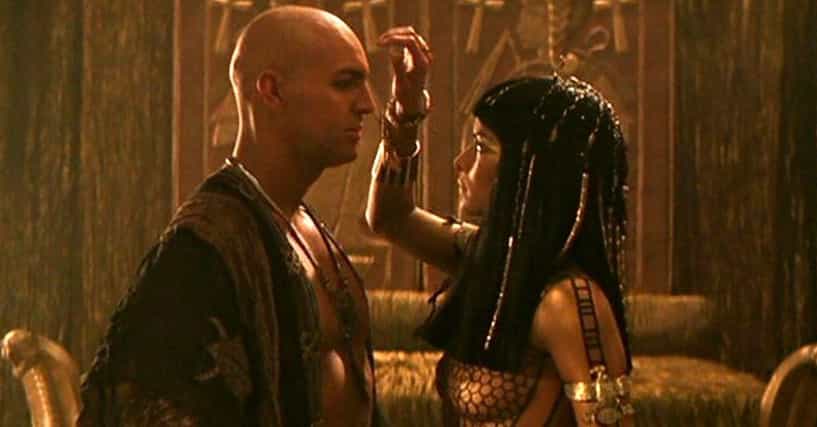
Imhotep Has Been Made to be the Bad Guy
While no one can be certain of history, Imhotep’s memory has been skewed by propaganda. For instance, his greatness has been underplayed, and he was portrayed as an evil person in “The Mummy” in both versions of the movie.
Before you go…
Hey, thank you for reading this blog to the end. I hope it was helpful. Let me tell you a little bit about Nicholas Idoko Technologies. We help businesses and companies build an online presence by developing web, mobile, desktop, and blockchain applications.
As a company, we work with your budget in developing your ideas and projects beautifully and elegantly, as well as participating in the growth of your business. We do freelance work in various sectors, such as blockchain, booking, e-commerce, education, online games, voting, and payments. Our ability to provide the needed resources to help clients develop their software packages for their targeted audience on schedule is unmatched.
Be sure to contact us if you need our services! We are readily available.
Put Your Tech Company on the Map!
Get featured on Nicholas Idoko’s Blog for just $200. Showcase your business, boost credibility, and reach a growing audience eager for tech solutions.
Publish Now










